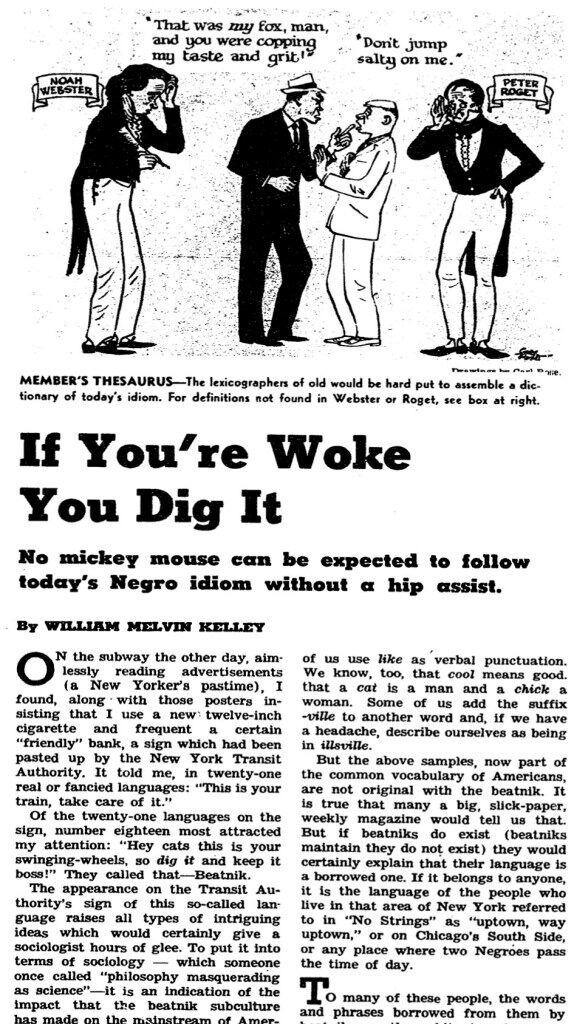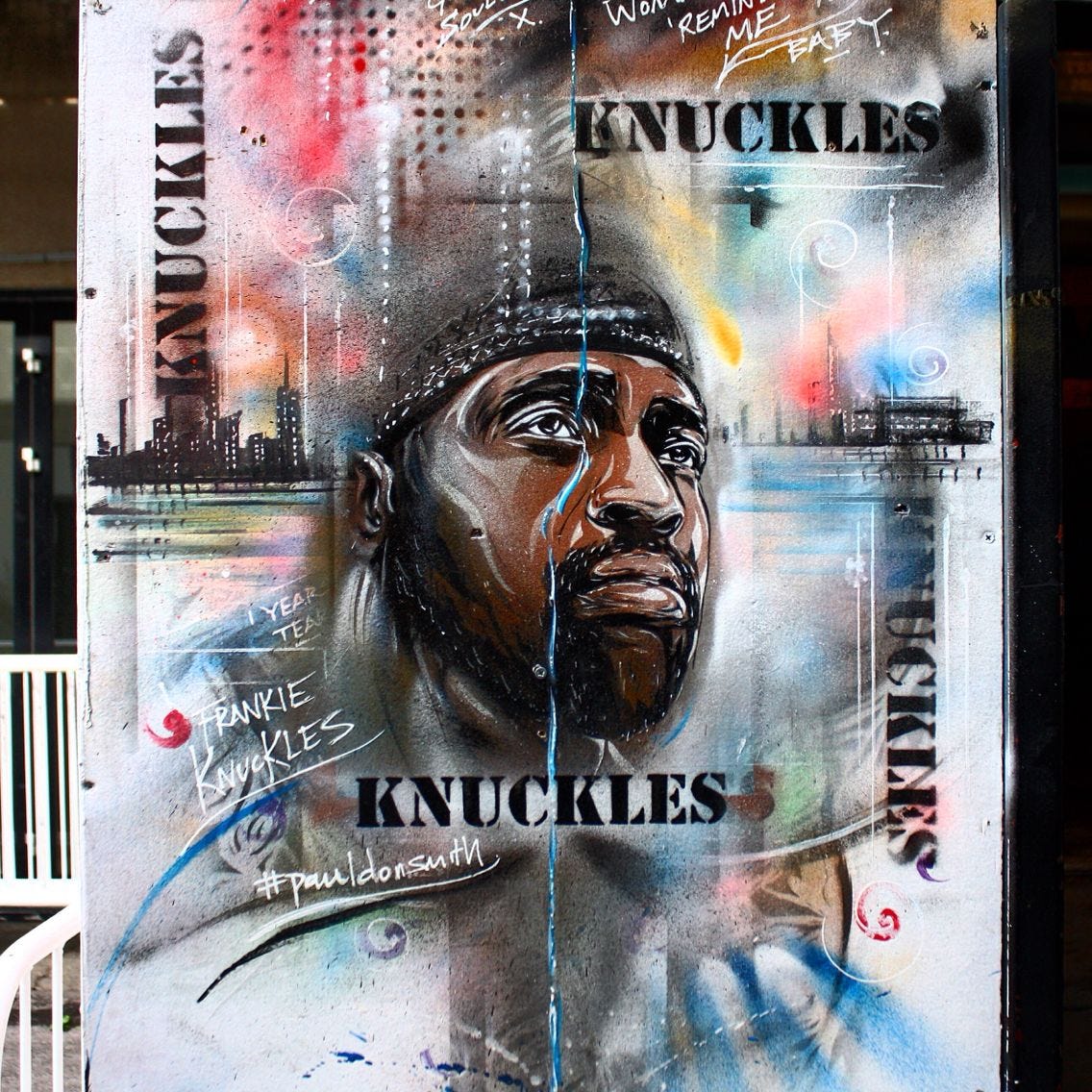In recent years, we have witnessed the emergence and popularization of the word "woke" in everyday language. Originally from the African-American community in the early 20th century, this term is now used by some as a means to discredit ideas politically associated with left-wing ideologies. Initially linked to social justice issues, the negative connotation that has become associated with this word demonstrates, once again, that colonial thinking continues to spread using one of its favorite methods: appropriation in order to render invisible.
A change in history and narrative that also serves to erase the political nature represented by the creation of the house and techno genres.
The Origins of "Woke"
The term "woke" first emerged within African American Vernacular English (AAVE), primarily as a call to stay aware of social injustices and systemic inequalities.
Ishena Robinson, for the NAACP (The National Association for the Advancement of Colored People), traced in her 2022 article, "How Woke Went From 'Black' to 'Bad': The Meaning of 'Woke'" the first known use of this word in a context related to social justice movements to Marcus Garvey in a 1920 speech and in a blues song recorded in 1938 called “Scottsboro Boys” by Lead Belly.
“So I advise everybody, be a little careful,
Best stay woke, keep their eyes open.”
The song recounts the story of the Scottsboro Boys, nine African American teenagers falsely accused of raping two white women in Alabama in 1931. Lead Belly's lyrics highlight the racial injustices faced by these young men and serve as a reminder of the systemic racism prevalent at the time.
Its use in the print media dates back to 1962, in the New York Times through an article by African American writer William Melvin Kelley.
This article highlights how the slang of the African American community is appropriated by white people and then distorted until its original meaning disappears.
“The language seems to be modified in two ways,
The first is to give a word, already in use, its opposite meaning.
At one time, the connotations of ‘jive’ were all good;
now they are bad, or at least questionable.”
Do you understand what William meant ? If you’re woke, you dig it.
"Woke" in Music and Black Culture
In her 2008 song "Master Teacher," Erykah Badu sings, "I stay woke," intertwining the term with themes of self-awareness and resilience.
If you now understand the original meaning of the term, you understand that, for example, Marvin Gaye was “woke” when he sang "What's Going On".
Nina Simone was that kind of artist too. House music and techno, created by the marginalized Black and Latin communities of Chicago and Detroit, are, in essence, "woke".
Political appropriation by the general public
As the term gained traction within Black culture, it eventually caught the attention of broader progressive movements. The left wing appropriated "woke" as a shorthand for social justice awareness, encompassing issues such as gender equality, LGBTQ+ rights, and climate change. While this expanded the term's usage, it also diluted its original, more focused meaning.
In mainstream media and popular discourse, "woke" began to signify a general state of being enlightened about social issues. This shift often stripped the term of its deep-rooted connection to the Black struggle against racial oppression. As "woke" became a buzzword, its usage sometimes bordered on performative, reducing a powerful concept to a trendy label.
The Colonialist Mindset and Cultural Transformation
The journey of "woke" from Black culture to a mainstream catchphrase exemplifies how the colonialist mindset continues to influence pop culture and common language. Historically, colonialism involved the domination and appropriation of cultures, often erasing or marginalizing the voices of those who created them. Similarly, when powerful cultural expressions are adopted by the mainstream, they risk being stripped of their original context and significance.
As "woke" became a fashionable term, its connection to the ongoing fight against racial injustice was often overshadowed by its new, diluted interpretation.
A few days ago, I stumbled upon a video clip from a podcast by a German DJ who claimed that techno didn't originate from Detroit. He mentioned Juan Atkins and argued that Kraftwerk influenced Atkins, suggesting that everything actually came from Germany.
It reminded me of this provocative line by the late African-American comedian Patrice O'Neal:
60 years from now they’re gonna try and say Eminem invented rap.
Watch!
White people would be slaves if they could, just to steal it.
The evolution of "woke" from a term rooted in Black cultural resistance to a mainstream buzzword is a microcosm of the broader dynamics of cultural appropriation.
In 2024, some people still say house and techno are not political.
With the rise of the far right in France, collectives are forming to defend "the right to dance" because their administrative privileges are threatened (not necessarily because it’s a threat for non-white people). They highlight sometimes that electronic music has its roots in Black culture, yet they do not include Black people in their collectives or lineups.
History repeats itself. There is a continuous effort to make invisible the communities that are the foundation of innovation and cultural movements.
On one side, there is an overt colonial mentality, while on the other, it hides behind a mask of fraternity and benevolence.
Whether we like it or not, house and techno music are Black.
Keep your third eye open and as said William Melvin Kelley : If you’re woke, you dig it.






